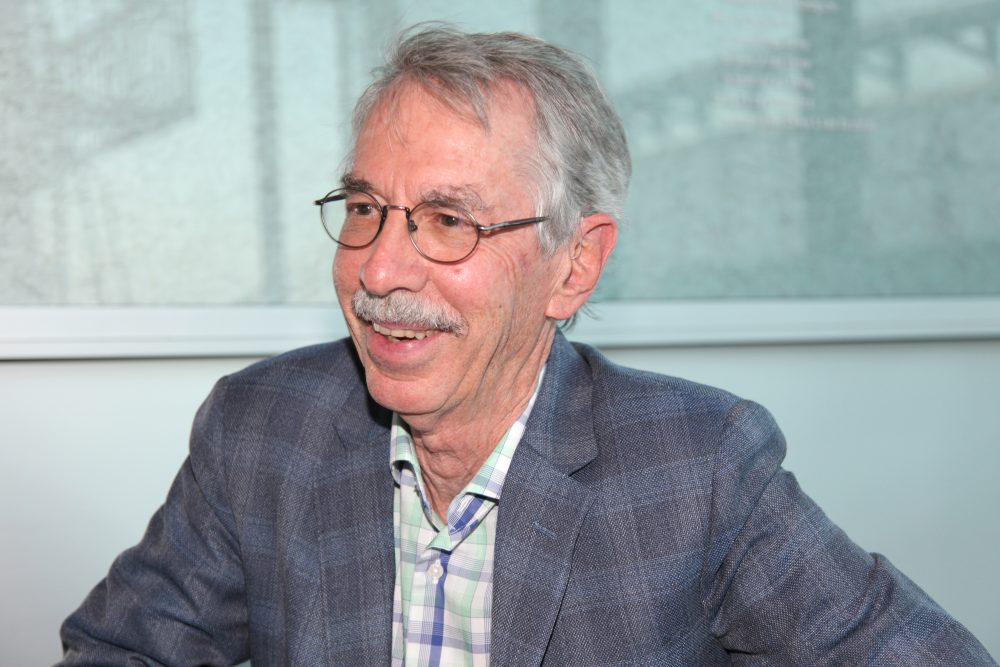
Photo by Aaron Salcido.
Ed Leamer is an economist at the UCLA Anderson School of Management. Before taking part in a Zócalo/UCLA Anderson event titled “What Will Trump’s Trade Wars Do to the U.S. Economy?” at the National Center for the Preservation of Democracy in downtown Los Angeles, he spoke in the green room about playing the clarinet, the Silk Road, and Einsteinian hairstyles.
Was there a professor or teacher who really influenced you?
I was an undergraduate at Princeton, a mathematics major, from 1962 to 1966. And I remember two or three very distinguished, world-known mathematicians—William Feller, Harold Kuhn, Albert Tucker—who were good in the classroom as well. That was very inspirational. Feller was something out of central casting, because he had this big head of hair, like Einstein, and he spoke in the classroom with that kind of demeanor. And his book and his teaching were really sensational.
Do you play a musical instrument?
No. I played a clarinet when I was a kid. I haven’t done that for a long time.
What do you do to relax?
I play tennis, I play golf. And I teach students!
That’s relaxing?
It’s extremely rewarding when done well. I’ve had a lifelong desire to be an educator, to influence the students. Many faculty [members] think of themselves first and foremost as researchers, and we get paid more as researchers than as educators, and [some think] of the classroom as a place to get over with the least amount of time and agony. But I really think that the educator’s calling is a very high calling, and the return on that is enormous.
Where did your impulse to teach come from?
My father was an economist at the university. People say I’m following in his footsteps, but I’m not sure I knew anything about teaching. I had two brothers, and all three of us are very successful, and people think that at the dinner table we sat around and had intellectual conversations. Believe me, it was all about who was going to get the bigger share of food that night.
If you weren’t an economist, what would be your profession?
You know, I’ve wondered if I were starting out again, would I go into economics? Economics has become highly mathematical. Most people joined the economics profession like I did, because they wanted to make the world better, they wanted to think like economists and help to make better public policy. I have a math background, so I don’t want to disparage math; it’s a very powerful language, and when used well it adds tremendous value. But economists got too much in love with their math, and the courses that they teach are mostly courses in math rather than economics. So I don’t know that I would necessarily choose that career again.
So what would you do instead?
You know, there’s hardly an obvious career. A lot of these Harvard undergraduates go into investment banking. I don’t think that’s right. I’ll pass up on that one.
What are you reading for pleasure?
I’m reading a book about the Silk Road, and it’s an extraordinarily interesting history. Our history teaching in high school and college over-emphasizes Western tradition and Europe. So this is about China and the Middle East and Russia, and the central role they played alongside European development. It’s an eye-opening book. The Silk Road was really about the passing of ideas across that long corridor from China all the way over to Europe.
If you could time-travel anywhere, where would you go?
I’d like to have come to Los Angeles in the ’30s. It was all new, and all kinds of people were here, and they were just getting started. It’s too developed and too controlled now.



